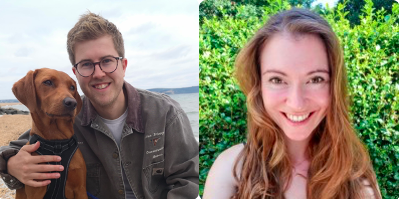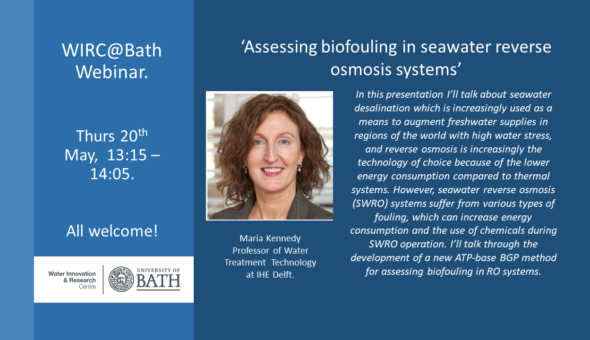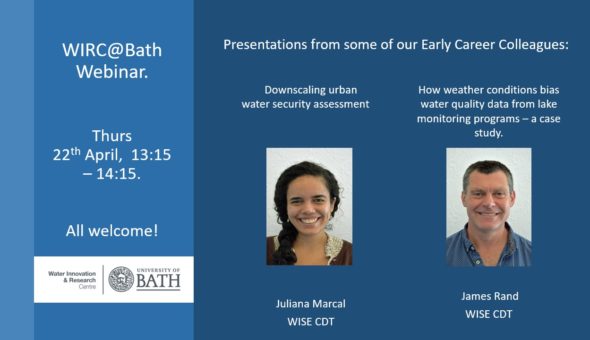Vicky Regan is a second-year MEng Chemical Engineering undergraduate. She had the opportunity to shadow some of Dr Ana Lanham’s PhD students who are currently undertaking research in areas related to wastewater treatment and resource recovery. In this piece she would like to share some of her thoughts, experiences and main takeaways after this invaluable work experience.
One of the reasons I was drawn to this area of chemical and environmental engineering is because of my strong interest into sustainability and the environment and my quest to pursue this in the future. Also, whilst studying for my A-levels I completed an Extended Project Qualification (EPQ) into a branch of biotechnology into biofortification of golden rice. Then, I came across the topic of environmental biotechnology which is another branch of biotechnology that addresses environmental problems through the use of biological processes. So, to me, this seemed like the perfect combination. This area of research showed me different ways in which we can support a sustainable future, whether through biopolymer production from wastewater or by fermenting food waste to produce valuable chemicals. The opportunities are endless.
For the first part of the week, I worked with Viviane Runa supporting her research into the process of Enhanced Biological Phosphorous Removal (EBPR). This is a biological process that uses specific microorganisms to accumulate and remove phosphorus from wastewater and in this way prevent eutrophication. It was very interesting to see the applications of concepts and processes that I had learnt during my studies, particularly in bioprocessing engineering and the biology modules in practice. Whilst performing the research I learnt about the different analytical techniques used and also the biopolymer production (PHA) from bacteria within these cultures.

I also assisted Vicky de Groof with her research into mixed microbial cultures (MMC) for fermentation processes (i.e., where there is no oxygen present), as a potential waste valorisation technique. This process involved the conversion of a bio-waste material into more useful materials, in this case, food waste into medium chain carboxylic acids (MCCAs). I had the opportunity to help Vicky with her research by providing a spare pair of hands as well as asking lots of questions! I got to help her monitor a few culture batches (see picture) by measuring the biogas composition in different samples using a gas chromatographer as well as measuring the pH and conductivity. I felt this research was incredibly interesting and very relevant to our world today with overpopulation pressures and the need to efficiently convert our waste into more practical products. It also gave me an opportunity to speak to Vicky, currently in her second year of PhD, not only about her research but also about extra-curricular activities and how she manages to do it all.

Overall, this was an incredible opportunity and I learnt so much from Dr Lanham and her team. Not only about the particular research areas but also about the holistic nature of their work and how they are creating an impact. I was also particularly fascinated by the concept of the circular economy where the aim is to minimise waste and maximise the use of our resources. This prospect is extremely appealing for me and I hope that one day I can contribute my knowledge and experience to have an impact on our community similar to the research being conducted by both Viviane and Vicky.
Respond




